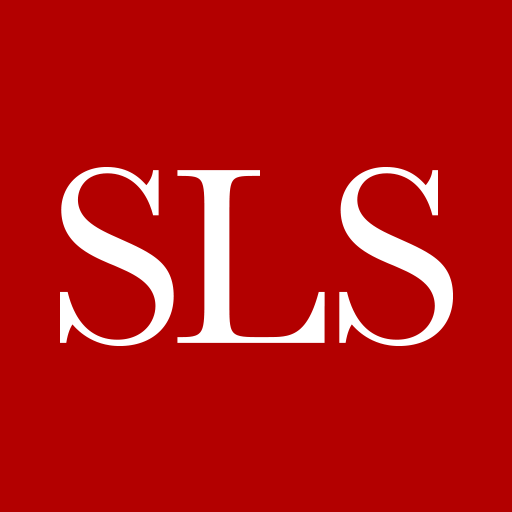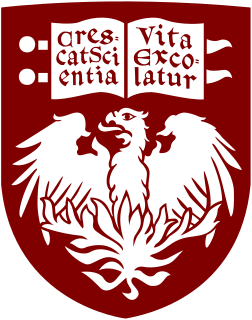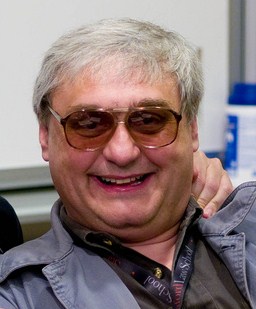
Stanford Law School is a professional graduate school of Stanford University, located in Silicon Valley near Palo Alto, California. Established in 1893, Stanford Law has been ranked one of the top three law schools in the country, with Yale Law School and Harvard Law School, every year since 1992. Since 2016, Stanford Law has been ranked 2nd. Stanford Law is consistently regarded as one of the most prestigious law schools in the world.
Holland & Knight LLP is an international law firm with more than 1,300 lawyers and other professionals in 28 offices throughout the world. United States offices are located in cities such as New York City, Boston, Washington D.C., and Miami. Its international offices are located in Bogota, Colombia, London, England and Mexico City, Mexico. Holland & Knight provides representation in litigation, business, real estate and governmental law.
A wealth tax is a levy on the total value of personal assets, including: bank deposits, real estate, assets in insurance and pension plans, ownership of unincorporated businesses, financial securities, and personal trusts. Typically liabilities are deducted, hence it is sometimes called a net wealth tax.
Though the actual definitions vary between jurisdictions, in general, a direct tax is a tax imposed upon a person or property as distinct from a tax imposed upon a transaction, which is described as an indirect tax. The term may be used in economic and political analyses, but does not itself have any legal implications. However, in the United States, the term has special constitutional significance because of a provision in the U.S. Constitution that any direct taxes imposed by the national government be apportioned among the states on the basis of population. In the European Union direct taxation remains the sole responsibility of member states.
John B. Shoven is the former Trione Director of the Stanford Institute for Economic Policy Research, the Charles R. Schwab Professor of Economics at Stanford University, the Buzz and Barbara McCoy Senior Fellow at the Hoover Institution and a research associate of the National Bureau of Economic Research. He specializes in public finance and corporate finance and has published on social security, corporate and personal taxation, mutual funds, pension plans and applied general equilibrium economics.
Case Western Reserve University School of Law is one of eight schools at Case Western Reserve University in Cleveland, Ohio. The law school is known for its innovation in legal education and blending of practice, theory, and professionalism. It has a long commitment to diversity and admitted students of color in its first entering class in 1892. It was one of the first schools accredited by the American Bar Association and it is a member of the Association of American Law Schools (AALS).
Michael Jay Boskin is the T. M. Friedman Professor of Economics and senior fellow at Stanford University's Hoover Institution. He also is Chief Executive Officer and President of Boskin & Co., an economic consulting company.
Edward McCaffery is a tax law professor at the University of Southern California Law School and also a visiting professor of Law and Economics at the California Institute of Technology. At USC he is Robert C. Packard Trustee Chair in Law and Professor of Law, Economics and Political Science. He teaches Federal Income Taxation, Property, Intellectual Property, and Tax Law and Policy at USC, Law and Economics and Law and Technology at the California Institute of Technology. He also teaches Corporate Taxation, Federal Income Taxation, Partnership Taxation, Property and a Tax Policy seminar.
The Competitive Tax Plan is an approach to taxation, suggested in the United States, that would impose a 10–15% value added tax (VAT) and reduce personal and corporate income taxes. The plan was created by Michael J. Graetz, professor at Columbia Law School and a former Deputy Assistant Secretary of the Treasury for Tax Policy. Graetz states that the plan would generate enough revenue so that families with $100,000 of annual income or less — almost 90% of all current filers — would not have to pay income taxes or file tax returns. The Competitive Tax Plan would provide a new payroll tax offset to replace the Earned Income Tax Credit and to protect low and moderate income workers from any tax increase under the new system. Under the initial proposal, households with an annual income of more than $100,000 would be taxed at a flat 25% rate and the corporate income tax rate would be reduced to 25%. Graetz argues that reducing the corporate tax rate "would make the United States an extremely attractive nation for corporate investments for both U.S. citizens and foreign investors". In 2013, Graetz presented an updated version of his plan for 2015.
Marvin A. Chirelstein was a Professor Emeritus of Law at Columbia Law School, where he taught for nearly 30 years. He taught a contracts course to first year law students as well as tax and corporate finance courses. Prior to teaching at Columbia, Professor Chirelstein taught for over 15 years at Yale Law School. He authored several course books on law.
William N. Kinnard, Jr. was one of America's leading real estate educators, authors, and experts in the field of appraisal.
Albert Theodore (“Ted”) Powers, is a senior lawyer, business executive, and investor based in Hong Kong. He is the chairman and chief executive of the Allied Pacific Group.
Chris William Sanchirico is the Samuel A. Blank Professor of Law, Business and Public Policy at the University of Pennsylvania Law School and the Wharton School. He is a leading expert on tax law and policy.
Michael H. Schill is the President of the University of Oregon and a law professor at the University of Oregon School of Law. He is the former Dean and currently the Harry N. Wyatt Professor of Law Emeritus at the University of Chicago Law School. He was appointed President on April 14, 2015 by the University of Oregon Board of Trustees. He assumed the presidency on July 1, 2015 and was formally invested on June 1, 2016. Schill is the author of three books and numerous articles, and focuses his scholarship in the areas of real estate and housing policy. His casebook, Property, co-authored with Jesse Dukeminier, James Krier, Greg Alexander, and Lior Strahilevitz is the best-selling casebook used in American law schools.
John Kent McNulty is an American legal scholar, who was a professor of law at the University of California, Berkeley for 38 years from 1964 to 2002 and who as a legal educator and scholar, was influential in shaping U.S. tax law policy debate during the later quarter of the 20th century.

Nancy Christine Staudt is the dean of the Washington University in St. Louis School of Law and the Howard and Caroline Cayne Professor of Law. She is a scholar in tax, tax policy, and empirical legal studies.
Alan J. Auerbach is an American economist. He is currently the director of the Robert D. Burch Center for Tax Policy and Public Finance at the University of California at Berkeley. He received his undergraduate degree in Economics and Mathematics from Yale University and earned his PhD in economics at Harvard University and was an assistant and then an associate professor at Harvard. He was then a professor of law and economics at the University of Pennsylvania.
Reed Shuldiner is the Alvin L. Snowiss Professor of Law at the University of Pennsylvania Law School, and Co-Director of the Center for Tax Law and Policy.
Anne L. Alstott is Jacquin D. Bierman Professor in Taxation at Yale Law School and an American legal academic. She graduated summa cum laude from Georgetown University in 1984 and graduated from Yale Law School in 1987. Following law school, she served as associate attorney at Sullivan & Cromwell and as Attorney Advisor at the Office of Tax Policy.




